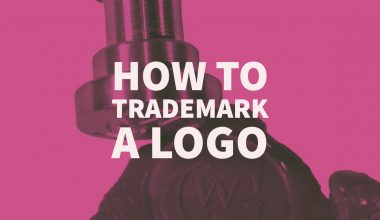Various types and sizes of business deals are typical in the course of doing business. Depending on the nature of the business transaction, the parties involved may decide to hire a freelancer or merge into a larger company. Anyone working in a business setting, from workers to independent contractors to business owners, can benefit from learning more about business negotiations and developing their negotiation abilities. This article will define a business deal, highlight its benefits, examples and outline strategies for successfully negotiating one.
Business Deal
When two or more people come together with the intention of starting a business together, they enter into a business contract. The most typical type of business transaction involves one party selling a product or service to another party, who then purchases the item or service. One example of a business transaction that may be necessary is the contracting of a wedding photographer. A merger between two companies is a more substantial business transaction.
Transactions between small businesses or between individuals who have worked together in the past sometimes take place on a more casual, off-the-record basis. The parties involved in the negotiations may only exchange handshakes after communicating via email or having lunch together at work. Even when conducting business on a casual basis, it is still a good idea to put the terms of the arrangement in writing, whether through an email or a simple contract. Formal approaches like lengthy negotiations, contracts, and lawyers are often necessary for a larger corporate agreement.
Advantages of a Business Deal
Any one or more of the following benefits could result from a business deal:
- If businesses are able to combine their resources into one pool, they can potentially use those resources more effectively.
- It aids an organization in closing any operational gaps that may occur.
- When businesses don’t have to worry about tasks that aren’t vital to their mission, they can devote more resources to developing those areas.
- Deals with other business organizations that are local to the area and have a thorough understanding of the market might help a company get its feet wet when expanding into new territory.
Disadvantages of a Business Deal
Despite its potential advantages, a corporate transaction could have certain drawbacks, as well:
- A “poor deal” occurs when one party breaches the agreement. This can lead to friction and the waste of resources on both sides. If problems aren’t solved, they could lead to a lawsuit, which would waste time and money and could hurt one or both parties’ credibility.
- It’s possible that one party underestimated the amount of time and money that would be needed to fulfill an agreement with another business. The company’s fundamental business activities may suffer as a result of the party’s adherence to the terms of the agreement. That could result in lost sales or missed opportunities.
How to Negotiate a Business Deal?
Take note of the following advice to improve your chances of closing a commercial deal:
#1. Invite the Key Players/Decision-Makers to the Table
Having the correct individuals in the room before beginning negotiations is crucial. It’s important to have the decision-makers present in order to get to a consensus. Make sure the opposite side has the authority to make legally enforceable promises before negotiations begin. This will help ensure that you don’t think you’ve reached an agreement with the other party, only to find out later that it needs to be approved by a higher-up in the organization’s chain of command.
#2. Come Prepared.
The key to being a successful direct negotiator is preparation and having a strategy. You need to put in your full effort, utilizing your powerful frontal lobe, adept skills, logic, and reason, if you want to achieve success in negotiations. You can’t just go down one road, so you need to come up with some novel ways of doing things. It’s also necessary to have a plan and consider your options, but it’s equally crucial to be flexible and open to new ideas. To assess whether an alternative to your original idea is a superior one, you need to be receptive to new information and data and to analyze it objectively.
Building a relationship with your negotiation partner is also an important element of getting ready. It’s important that you invest in learning about their business and culture. (Ambien) The feasibility of a merger or partnership can be evaluated more accurately if you have a thorough grasp of the other party (e.g., how will your staff function together, and what potential difficulties might arise).
#3. You Should Never Play it Safe.
It’s possible that you’ve already thought through all the ways in which a bargain like this could benefit you. Also, think very hard about any hazards that might be involved. Risks must be evaluated objectively if a mutually acceptable agreement is to be reached.
#4. Prioritize the Most Important Concerns
If you want to get the most out of your business negotiations, avoid being sidetracked by focusing on the most critical points. Don’t get caught down in the details. Keep your attention where it belongs on the core issues that must be addressed in order to reach a compromise.
#5. Take a Record of the Agreement.
If a compromise is reached over the phone, it’s a good idea to put the terms of the deal in writing. Don’t waste time attempting to figure out every last detail. Since negotiations frequently fail due to a lack of momentum, it is important to document the most important points.
Business Deal Examples
Business deal examples include a range of situations involving both big and small enterprises as well as various sorts of organizations. Numerous stories below involving diverse organizations and enterprises of varying sizes serve as successful business deal examples.
#1. Simon and Schuster
Months of discussions between publishing powerhouse Simon & Schuster and bookstore chain Barnes & Noble stalled in 2013 when Barnes & Noble tried to gain further leverage by cutting orders of Simon & Schuster assets. They took a tough stance during negotiations by canceling reading events featuring authors from the publishing powerhouse. The publishing company’s agents, writers, and editors expressed regret that Barnes & Noble had used them as bargaining leverage, as the bookstore is responsible for selling about 20% of consumer-based books in the United States.
#2. National Hockey Association Case
The National Hockey Association is one of the examples of a business deal to look at. Things moved forward after 113 days when federal mediator Scot Beckenbaugh got involved with the NHL lockout. When tensions rose during discussions, he employed shuttle diplomacy by splitting the parties apart and speaking to each one individually to identify areas of contention and identify areas where compromise might be possible. The final product resolved the issue of pensions for players.
#3. Chrysler Dispute
To ensure its financial stability, Fiat planned to acquire Chrysler. After Chrysler filed for bankruptcy in 2009, Fiat was able to purchase $640 million in government investments from both Canada and the United States in 2011. Attempts were made by Fiat to acquire a VEBA-held share, but the parties could not agree on an appropriate purchase price. The ensuing argument cost an extra $4.5 billion due to a drafting mistake.
#4. Apple Lawsuite
Apple sued Samsung in 2011, alleging that the Korean business had stolen the iPhone’s design to produce its Galaxy range of smartphones. When Apple refused to compensate Samsung for the use of its wireless transmission technology, Samsung filed a countersuit. Both have been accused by the other of copying the design and features of their tablets and smartphones. Both giants showed some flexibility in an effort to avoid going to court. A California judge recommended that they cut the number of patents in dispute in half.
Since Samsung is one of Apple’s top suppliers, executives from both firms expressed a desire to end the issue and go on with business as usual.
#5. Amazon Case
A new pricing mechanism for electronic books was agreed by five major U.S. publishers in 2007 with Apple, in advance of the iPad’s release. E-book costs increased to roughly $14.99 after a publisher threatened to withhold digital versions from Amazon unless it switched to a better format.
#6. Starbucks Case
As another example, Kraft Foods and Starbucks were at odds for three years over the retail sale of Starbucks coffee before an arbitration panel ruled that Starbucks had broken its contract with Kraft. As a result, Starbucks forked up $2.75 billion to Kraft.
Also read Starbucks customer service
#7. New York City Dispute
If New York City and the Teachers’ Union could agree on an evaluation mechanism, the city would see a four percent increase in state aid, amounting to about $250 million in aid and another $200 million in awards. The United Federation of Teachers and ex-mayor Michael Bloomberg failed to reach an agreement before the end of 2012.
On the day before the deadline, both parties said they would be staying up late to negotiate, but they were still unable to come to terms by the following morning. Andrew Cuomo, the state’s governor, has finally instituted an assessment program for use in New York.
#8. Time Warner Case
Lastly, on our list of business deal examples, is this time-warmer case. Due to a financial dispute with TV network CBS, cable giant Time Warner blocked CBS from millions of homes in 2013. This resulted in a huge quarterly loss of TV subscribers, the largest in the company’s history. CBS was hailed as a victor after securing a contract that guaranteed it a twofold increase in programming costs per subscriber in the blacked-out areas. This increase was made possible by the addition of digital rights to provide material to web-based distributors like Netflix.
How Do You Crack a Business Deal?
- Recognize and Bear in Mind That Negotiations Are A Natural Part Of The Business Environment.
- Maintain an open mind and use your ears more.
- Do your homework and come prepared with what you are there for.
- Aim Big and Strive for It.
- Never, ever accept the first offer.
What is a Business Deal Between Two or More Parties Called?
A contract is an agreement between two or more parties that is legally binding and establishes the parties’ rights and obligations.
How Do You Land a Business Deal?
- Bring in the appropriate parties and key decision-makers.
- Be ready in advance.
- Never undervalue the hazards you face.
- Focus on the important topics.
- Remember the agreement.
What are the 4 Types of Business Contracts?
- Lump Sum Agreement.
- Unit Price Agreement.
- Cost Plus Agreement.
- Contract for Materials and Time.
Is a Business Deal Between the Seller and Buyer?
- Ask for a Discount on Several Items.
- Point Out Any Errors.
- Display Disinterest.
- Be Confident….
- Be Prepared to Leave….
- Display Hesitation.
- Become At Ease With Silence.
- Make them determine the cost.
How Do You Negotiate a Deal?
These are some tactics and methods you can employ while haggling with a salesperson in order to get the price down.
Conclusion
A business deal or transaction, is an arrangement between two or more parties (often a seller and a buyer) to transact business by exchanging some sort of consideration (such as goods, services, or information) for one another. Each side of a commercial transaction is not without its benefits and drawbacks. Successful commercial transactions are the result of well-planned and executed negotiation methods between the various stakeholders.
FAQ
What’s another word for business deal?
Another word for business deal can be dealing; trade; transaction; dealings.
How do I become a better deal maker?
- Turn positions into goals and passions.
- Be the last to make a proposal.
- Trade and link.
- Make a proposal to your client.
- Divide the discrepancy.
- Build consensus early.
What is deal strategy?
Every deal strategy is unique for each opportunity in the pipeline and describes “HOW” you will take the deal from the early opportunity stage to a closed contract.
Related Articles
- 6 Responsibilities of a Personal Injury Lawyer
- STARBUCKS CUSTOMER SERVICE: Best Practices Explained!!! (+ Free Tips)
- FORECLOSURE ATTORNEY: Overview and Fees (Updated!)
- Walmart Thanksgiving Hours & Other Stores Open On Thanksgiving 2023
- PAYPAL SELLER PROTECTION: Detailed Guide to the PayPal Seller Protection Policy






